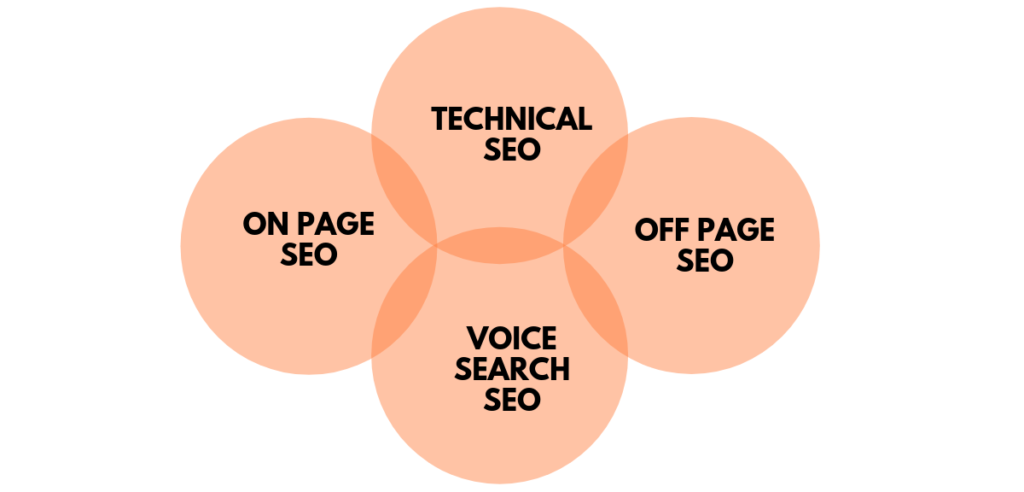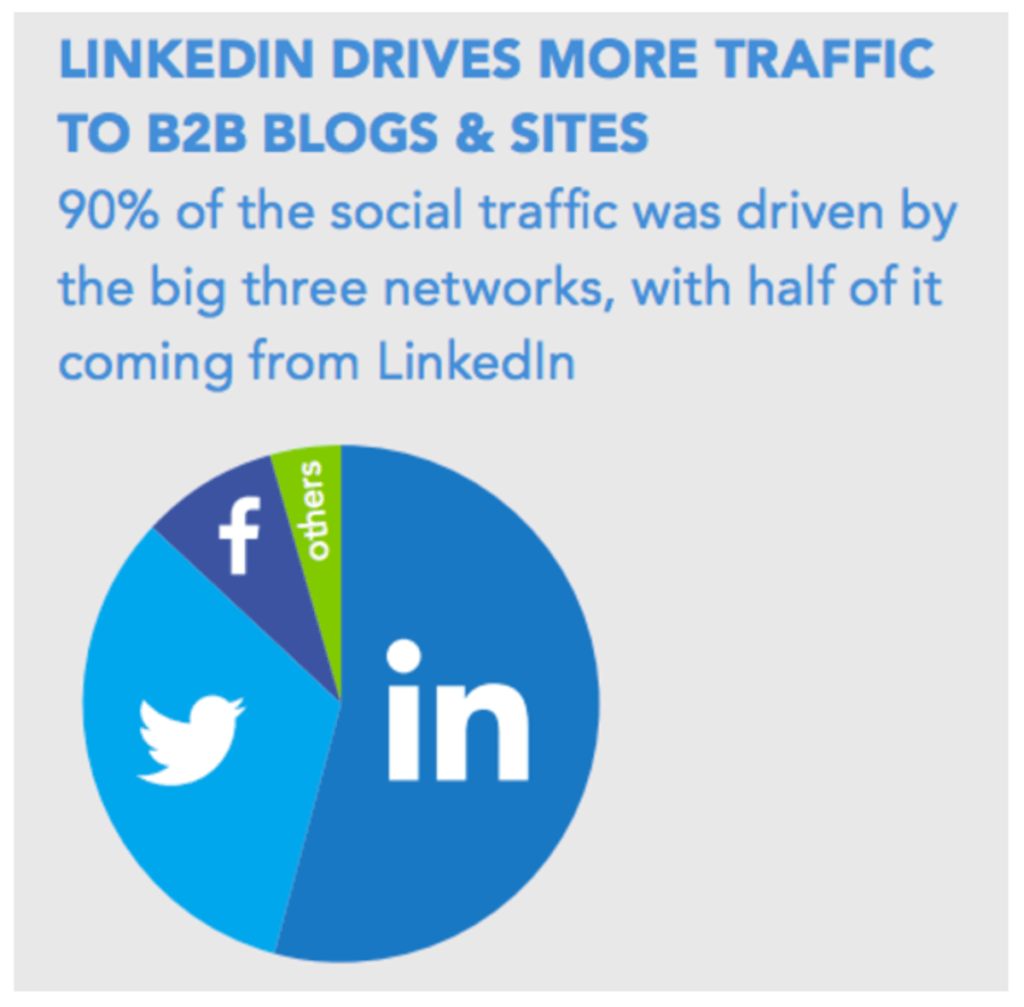Your real estate website serves as the hub for your online presence and is crucial for attracting potential buyers and renters. Invest time and resources into building an effective website that converts visitors into leads and customers.
Start by showcasing your property listings through high-quality photos, videos, and 3D floor plans. Visual content grabs attention and helps buyers visualize themselves living in the property. Make it easy to view details like price, bedrooms, amenities, and neighborhood info.

Optimize your website for speed and user experience. Slow load times will cause visitors to leave quickly. Ensure fast page speeds through site hosting, image compression, caching, and code minification. Keep site navigation simple and intuitive. Display properties attractively and make key info accessible.
Integrate lead capture forms on each page to collect interested visitors’ contact info. Offer them value like market reports or neighborhood guides in return for their email address. Place call-to-action buttons strategically throughout the site to encourage engagement.
Make sure your website works seamlessly on mobile as well. With a majority of traffic coming from smartphones, mobile optimization is a must.
With an enticing, conversion-focused real estate site, you can directly turn more website visitors into valuable leads. Keep the site updated regularly with new inventory and content.
Leverage Google Ads
Google Ads provides a powerful platform to generate leads and increase website traffic for real estate businesses in Dubai. By creating targeted search, display, video, and remarketing campaigns, you can connect with high-intent buyers and sellers actively searching for properties online.
Some best practices for real estate Google Ads include:
– Targeting searches related to properties, areas, developers, or general searches like “Dubai real estate” or “apartments in Dubai Marina”. The exact match type can help reach those actively searching.
– Using display ads paired with remarketing to reach users who have already visited your site or listings. This helps stay top of mind. Display ads can use eye-catching imagery of properties or lifestyle visuals.
– Incorporating video ads into the mix. These tend to have higher engagement and work well for real estate. Short videos showcasing property features help generate interest.
– Crafting relevant ad text and extensions like call, location, callout, and affiliate location extensions. These help increase click-through rates.
– A/B testing different ad variations to improve performance. Test ad copy, landing pages, bids, and more.
– Monitoring keyword performance and tweaking targeting accordingly. Expand keywords that convert or add negative keywords to save on spend.
– Using demographic, geographic, device, and remarketing targeting to hone in on relevant audiences.
With continual optimization and monitoring, Google Ads can deliver a steady stream of interested buyers and potential listings to your real estate business in Dubai. Investing in this platform should be a priority.
Create Targeted Landing Pages
Landing pages are one of the most effective ways to generate and capture leads in real estate marketing. Unlike your main website, landing pages are focused on specific campaigns, listings, or offers. This allows you to target your message and provide a streamlined path for motivating site visitors to convert into leads.
When creating landing pages, the layout and content should be geared towards your campaign goals and desired user actions. Include a strong headline and supporting imagery that speaks directly to who the page was built for. The body content should provide concise but compelling details on the property or offering highlighted on the page. Don’t bury your messaging in lengthy paragraphs—get right to the point with bullet lists of features and benefits.
The most critical element of an effective landing page is the call-to-action (CTA). This could be a form to request more information, sign up for a tour, or consult with an agent. Make sure the CTA button or text stands out through size, color, and placement on the page. Eliminate potential friction in the conversion process by only asking for essential contact information.
Set up dedicated landing pages for your pay-per-click, social media, retargeting, email, and other ad campaigns. The pages can be optimized for keywords and tailored for each marketing channel. With a quality landing page strategy, you’ll maximize conversions from your real estate marketing spend.
Engage on Social Media
Social media is an incredibly effective channel for real estate marketing in Dubai. Platforms like Instagram and Facebook allow you to directly engage with home buyers and sellers in the region.
Focus your social media efforts on consistently sharing new property listings, neighborhood tips, market data, and other valuable content. Well-designed visuals like videos and images tend to gain the most traction.
Partnering with relevant influencers can be a great way to expand your reach and credibility. Work with local real estate, lifestyle, or photography influencers to create co-branded content or sponsorships. Make sure to vet influencers thoroughly based on audience quality and engagement rates.
Leveraging paid social media advertising can further amplify your organic content. Geo-targeted Facebook and Instagram ads enable you to get your listings and brand in front of motivated users. Consider promotions to boost engagement on your best performing organic posts.
Track metrics like reach, engagement rate, link clicks, and lead generation to optimize your social media marketing efforts. Adjust targeting, content, and creatives based on performance data.
Email Marketing
Email marketing is a highly effective strategy for real estate agents and agencies to stay top of mind with potential clients and generate new leads. With email, you can directly reach your subscriber list and promote your latest property listings, open house events, market updates, new development launches, and more.
Some tips for optimizing your real estate email campaigns:
– Regularly send listings that match your subscribers’ criteria. Include high-quality photos, a detailed description, neighborhood info, pricing, and a call-to-action to schedule a showing.
– Promote upcoming open house events to drive attendance from your email list. Include the address, date/time, registration details, property features, and an RSVP link.
– Send monthly or quarterly market update emails to build awareness and mindshare. Cover trends in prices, supply/demand, days on market, absorption rate, etc.
– Announce new development project launches and promote pre-sales to your audience. Share floor plans, amenities, prices, and investor highlights.
– Segment your list by buyer profile, property type, location, price range, etc to send targeted emails. Personalize messages with the recipient’s name.
– Track email metrics like open rate, clickthrough rate, and unsubscribes. Use the data to refine your real estate email campaigns for better results.
– Ensure your emails are mobile-friendly, with minimal images and clear calls-to-action so recipients can easily convert on mobile.
With valuable, relevant content sent on a consistent schedule, email marketing can generate quality leads and referrals for any real estate business. Focus on promoting listings, events, market news, and new projects to engage your audience.
Implement WhatsApp Marketing
WhatsApp has become a crucial communication channel for real estate in Dubai. With high WhatsApp usage rates, it presents a major opportunity to connect with leads.
Some key ways to leverage WhatsApp for real estate marketing include:
– Share New Listings – Send images, videos and details of new property listings directly to leads via WhatsApp. This provides a personalized, timely update on the latest options available.
– Engage Leads – Interact with prospective buyers and tenants to answer questions, provide tours and negotiate deals. WhatsApp Business enables productive conversations.
– Automate with Chatbots – Set up chatbots to qualify leads, provide listings and book viewings automatically. This makes conversations more efficient.
– Send Alerts – Send broadcast messages to notify your database about open houses, price reductions or other time-sensitive updates.
– Share Market Info – Provide market reports, area guides and other valuable content to nurture leads and build authority.
– Track Performance – Use WhatsApp metrics to see open rates, responses and optimize efforts. Integrate with CRM.
With engaging messaging and automation, WhatsApp enables ongoing nurturing of leads to drive conversions. It’s an essential addition to any real estate marketer’s toolkit in Dubai.
Focus on SEO
For real estate agents and brokers, search engine optimization (SEO) is essential for generating more website traffic, leads, and sales. By optimizing your website and content for relevant search queries, you can rank higher in Google and get more visibility. Consider these SEO tips:
– Conduct keyword research to identify high-volume search terms potential buyers and renters are using to find properties in your area. Target keywords like “Miami real estate” or “condos for sale in Dubai” that have good local search volume.
– Optimize website pages and content for these buyer and renter keywords. Include the keywords naturally in page titles, headers, content, image names, alt text, and meta descriptions.
– Create unique location pages, development pages, and school district pages targeting each area. Optimize these for neighborhood names, buildings, or school districts.
– Follow SEO best practices like optimizing page speed, improving site navigation, generating backlinks, and fixing technical errors.
– Produce fresh, high-quality content regularly. Blog posts, market reports, and other content assets help search engines understand your expertise.
– Use Google Search Console to monitor crawl errors, site indexing, and page rankings. Review analytics to see which pages and keywords drive traffic.
– Work with an SEO expert if needed to execute an effective SEO strategy tailored for real estate sites. Ranking well for your target terms can significantly boost site traffic and conversions.
Consider Chatbots
Chatbots allow for 24/7 automated interactions on your real estate website. Intelligent chatbots can be programmed to respond to common questions, qualify leads, and even book property viewings. This enables your business to communicate with prospects at any time of day while filtering out tyre-kickers.
Key advantages of chatbots for real estate include:
– Available 24/7 to immediately respond to website visitors
– Can ask qualifying questions to determine lead potential
– Book viewings and capture lead details, integrating with your CRM
– Provide instant answers to common FAQs like pricing, location, features etc.
– Automate communication without staff workload
– Analyze conversations to improve lead gen process
– Direct hot leads to agents while screening others
– Offer quick responses in today’s on-demand customer service culture
As real estate becomes more digital, chatbots are a smart addition to remain competitive. They maximize your online presence and enable communications even when staff is offline. Begin with a basic FAQ chatbot and expand capabilities over time. Consider IBM Watson or MobileMonkey for easy implementation. With the right chatbot strategy, you can engage and qualify leads around the clock.
Use Call Tracking
Call tracking allows real estate agents to attribute phone calls to different online and offline marketing campaigns and touchpoints. By assigning unique phone numbers to each ad, landing page, email, social media post, etc., agents can identify which marketing efforts are generating the most calls and conversions.
The key benefits of call tracking for real estate marketers include:
– Understanding online/offline attribution – With unique phone numbers for each campaign and media channel, call tracking provides visibility into how website visitors, social media followers, email subscribers, and offline marketing convert into phone calls. This helps optimize budget across digital and traditional marketing.
– Identifying high-converting campaigns, keywords, referrers – Call tracking numbers provide insights into which specific keywords, campaigns, referrers, and other touchpoints are producing calls. Agents can double down on the highest converting sources of calls.
– Prioritizing marketing initiatives – By reporting on call volume and quality, call tracking helps agents understand the ROI of their marketing efforts. Campaigns generating more high-quality calls can be prioritized and expanded.
– Customizing follow-up for leads – Agents can segment and customize follow-up based on the source of the lead call. This helps improve lead conversion rates.
– Dynamic number insertion – Some call tracking tools allow for dynamic number insertion on websites and ads so each visitor sees a unique number. This provides more granular tracking data.
To maximize the benefits of call tracking, agents should choose a reliable call tracking provider, ensure thorough setup and testing, train staff on using call tracking data, and regularly optimize marketing efforts based on actionable insights. With effective implementation, call tracking is a powerful real estate marketing tool.
Host In-Person Events
Hosting in-person events can be a great way to directly engage with potential buyers and renters in your local real estate market. Consider holding open houses, broker events, or networking mixers to help generate more leads and sales opportunities.
Some ideas for successful real estate events include:
Open Houses
– Hold open houses for your new listings to drive traffic and interest. Widely promote the open house dates and times across your marketing channels.
– Make open houses feel lively and inviting with refreshments, decor, and friendly staff on hand to engage visitors and answer questions.
– Capture lead information from open house visitors for future follow up. Send quick thank you notes and additional property details to all open house attendees.
Broker Events
– Host dedicated events for brokers to showcase your listings. Brokers refer many clients and are essential connections in real estate.
– Consider events like broker open houses, listing lunches, or chats over coffee. Offer brokers valuable info and networking opportunities.
Networking Mixers
– Attend or host real estate networking events to connect with prospects. These could be general networking mixers or real estate focused events.
– Come prepared with business cards, listing info sheets, and an elevator pitch about your services. Follow up promptly with all promising connections.
In-person events require planning and promotion, but they enable direct relationship building in real estate. Hosting quality events tailored to buyers, sellers, brokers, and other key contacts can pay off with more client engagements and closed deals.
Encourage Referrals
Incentivizing past clients to refer friends and contacts is a great way to generate new leads as a real estate agent. People are far more likely to work with an agent if they are referred by someone they know and trust.
To encourage referrals, consider creating a formal referral program that provides rewards and incentives. For example, you could offer past clients a gift card or cash bonus for every referral that ends up closing a deal with you. The referred friend could also get a bonus or gift as well. This incentivizes both sides to participate.
Make the referral program terms clear and easy to understand. Promote it prominently on your website, email newsletters, and other marketing materials. Remind past clients about the program and encourage them to spread the word to friends looking to buy or sell real estate.
You can get creative with referral rewards. Offer tiered bonuses based on the sale price or number of referrals provided. Or throw referral parties for your top advocates. The key is giving clients compelling reasons to connect you with their network.
Referral programs demonstrate that you appreciate client relationships and want to reward loyalty. While they require some investment, the new business generated makes it well worth the effort. Referrals convert at higher rates than other leads since they come pre-qualified. Given how important referrals are in real estate, taking steps to actively encourage referrals should be a priority.
Proactively Seek Reviews
Getting more positive reviews for your real estate business can help build trust and credibility with potential clients. Here are some tips:
– Ask satisfied buyers/renters to leave reviews on platforms like Google, Facebook, and industry sites after closing or move-in. A personal request often leads to more reviews.
– Send follow-up emails after closing with a link to leave a review. Many clients are willing to leave feedback but need a reminder.
– Monitor review sites and respond professionally to any negative feedback. Avoid being defensive, but rather acknowledge the complaint, apologize for any inconvenience, and state how you plan to improve. This shows you care about providing good service.
– Consider inexpensive gifts like coffee cards and thank you notes to happy clients, asking them to review you online if they were pleased with your services.
– Track your review volume over time as a metric. Aim to gradually increase the number of reviews you get each month.
With a strategy to regularly get more reviews, you can build up your reputation and trustworthiness. This makes clients more likely to choose you over another agent with fewer or no reviews.
Research the Competition
To improve your own real estate marketing efforts in Dubai, it’s important to research what the top real estate firms are doing for their marketing and advertising. Keep an eye on their websites, social media, online ads, email campaigns, and other marketing channels to identify successful approaches that you could potentially replicate or learn from.
Specifically, look at:
– Their website design, features, listings, videos, images, calls-to-action, and optimization. Is their site easy to navigate? Does it highlight properties effectively? What value does it provide beyond just listings?
– Social media presence across platforms like Facebook, Instagram, Twitter, YouTube, LinkedIn. Do they have an active presence and following? What kind of content resonates best on each platform?
– Paid advertising through Google, Facebook and other channels. You may see their ads as you browse online. Check landing pages and ad copy.
– Email marketing campaigns. Do they send regular emails? What marketing incentives do they offer?
– Events, sponsorships, partnerships. Do they hold open houses, networking events, seminars?
– Reviews on Google, Facebook, industry sites. How do they generate and respond to reviews?
– SEO performance on keywords. Are they ranking well for competitive terms?
By examining competitor real estate marketing regularly, you can get ideas for what resonates in your market and where there may be opportunities to improve your own marketing mix. Focus on what works well in their strategy and how you could apply effective tactics to your own business.
Leverage Marketing Technology
Marketing technology can give real estate agents and agencies an edge when implemented effectively. With so many proptech tools and platforms now available, it’s important to identify the right tech stack to support your real estate marketing goals.
Some key types of marketing technology to consider include:
– Marketing automation platforms: These streamline digital marketing campaigns like email, social media, and ads. They help you nurture prospects and leads through personalized journeys. Top platforms like HubSpot and Mailchimp integrate directly with CRM systems.
– CRM software: A real estate CRM centralizes your contacts, properties, transactions, and tasks into one place. It gives you a holistic view of your clients and deals in progress. Salesforce, Trello, and BoomTown offer robust CRM solutions.
– Analytics and tracking: Dive deep into your marketing analytics using platforms like Google Analytics, Google Tag Manager, and Facebook Analytics. Call tracking through vendors like CallRail also provides insight into leads and conversions.
– Listings databases: The MLS database houses property listings in a geographic region. Homesnap, RealNet, and Replit offer enhanced listing services as well. IDX plugins can help syndicate listings to your site.
– Email services: Email marketing platforms like Mailchimp, Constant Contact, and SendinBlue help design, send, and track email campaigns.
– Social media management: Hootsuite, Sprout Social, and Buffer allow you to schedule posts, engage with audiences, monitor mentions, and analyze performance across social platforms.
Do competitive research to see what proptech stacks top-performing real estate firms use. The right combination of marketing technology can optimize your efforts and time when executed properly. Don’t get overwhelmed by all the options – identify 2-3 priorities to focus on first for maximum impact.
Work With Marketing Agencies
Working with marketing agencies is a key way for real estate businesses to augment their in-house marketing efforts. While in-house marketing teams understand the brand voice and business goals intimately, partnering with agencies provides specialized expertise and additional workforce.
The ideal agency relationship allows real estate companies to tap into creative campaign development while maintaining alignment on brand image and performance reporting. Agencies can provide critical support with creating and managing digital campaigns across channels like paid search, social media, and content distribution.
When vetting potential agency partners, real estate companies should evaluate their experience working with similar clients, expertise across priority channels, and reporting capabilities. Clearly defining expectations for campaign objectives, branding guidelines, targets, and results is crucial. Ongoing communication, transparency, and sharing of insights help nurture successful partnerships.
With the right agency relationship, real estate companies gain expanded marketing capabilities and expertise while benefiting from the outside perspective of industry specialists. This allows in-house teams to focus on core strengths and company-specific knowledge.







